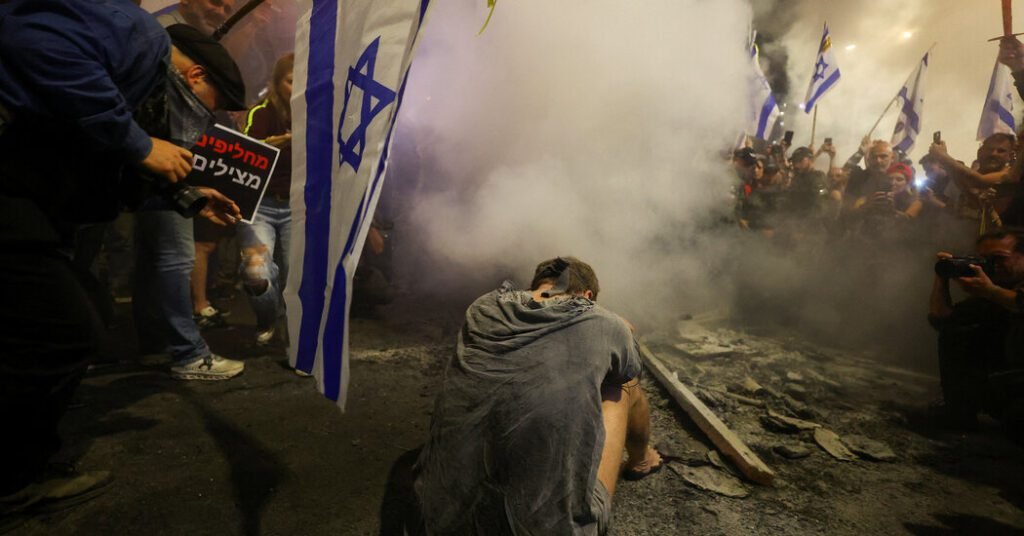As the war between Israel and Hamas approaches the six-month mark, Prime Minister Benjamin Netanyahu is facing mounting pressure on multiple fronts, at home and abroad.
He has faced resistance from protesters, relatives of hostages held by militants in Gaza, the international community and elements of his ruling coalition as criticism mounts over his prosecution of the war against Hamas.
“He’s up against a lot,” said Dahlia Scheindlin, a political scientist based in Tel Aviv. “But he responds with the maximum possible contempt and the minimum possible decision-making.”
Although many Israelis have refrained from protesting against the government during the war, thousands of Israelis on Sunday thronged the streets in Jerusalem next to the Knesset, Israel’s parliament, to demand early elections, in one of the most significant demonstrations against his government. Mr. Netanyahu since then. the war began in October.
Mr. Netanyahu has managed to serve longer than any prime minister in Israel’s history, in part because of his political savvy. But his popularity had already declined before the war, due to a judicial review that sparked some of the biggest protests in Israel’s history. It suffered another heavy blow when Hamas’ attack on October 7 exposed serious security weaknesses.
He hit back at people calling for elections, arguing they would paralyze the country for at least six months and prevent it from achieving its goals in the war, which he said include a “total victory” over Hamas.
In recent weeks, some hostages’ relatives have expressed dismay at Mr. Netanyahu’s handling of indirect negotiations with Hamas aimed at securing the release of their loved ones and a ceasefire. The prime minister, therefore, is so determined to seek the destruction of Hamas that he may do so at the expense of the hostages.
“You are wrecking the deal,” Einav Zangauker, the mother of a hostage, said at a demonstration in Tel Aviv on Saturday. “You failed on October 7 and you’re failing today.”
As if to underline his problems, Mr Netanyahu was hospitalized on Sunday to undergo hernia surgery.
He has said that Hamas is sticking to unrealistic demands and that those who believe it has not done enough to secure the release of the hostages are wrong.
Mr. Netanyahu has also faced pushback abroad for his policies, especially those that have led to massive civilian deaths and destruction.
In February, President Biden called Israel’s military operations “excessive” and said the suffering of innocent civilians “must stop.” Several world leaders have also warned Israel of a planned ground attack on Rafah, the southern Gaza city where most of the enclave’s population has sought refuge, and the Biden administration has said a major operation there would be a mistake.
US Senate Majority Leader Chuck Schumer, Democrat of New York and the highest elected Jewish official in the United States, went further than any senior American leader in publicly rebuking Mr Netanyahu, delivering a scathing speech in mid-March that accused him of let his political survival supersede “Israel’s best interests” and be “all too willing to tolerate the deaths of civilians in Gaza.”
Within his government, Mr Netanyahu faces divisions over whether ultra-Orthodox Jews should retain their longstanding exemption from military service.
An unwieldy right-wing alliance of secular and ultra-Orthodox lawmakers, coalition members are divided over whether the state should continue to allow young ultra-Orthodox men to study at religious seminaries instead of serving in the army, as most other Jewish Israelis do.
If the government removes the exemption, it risks alienating ultra-Orthodox lawmakers. If he leaves the exemption in place, secular members could withdraw. Either way, the coalition could collapse, forcing an election.
Patrick Kingsley contributed to the reporting in this article.

